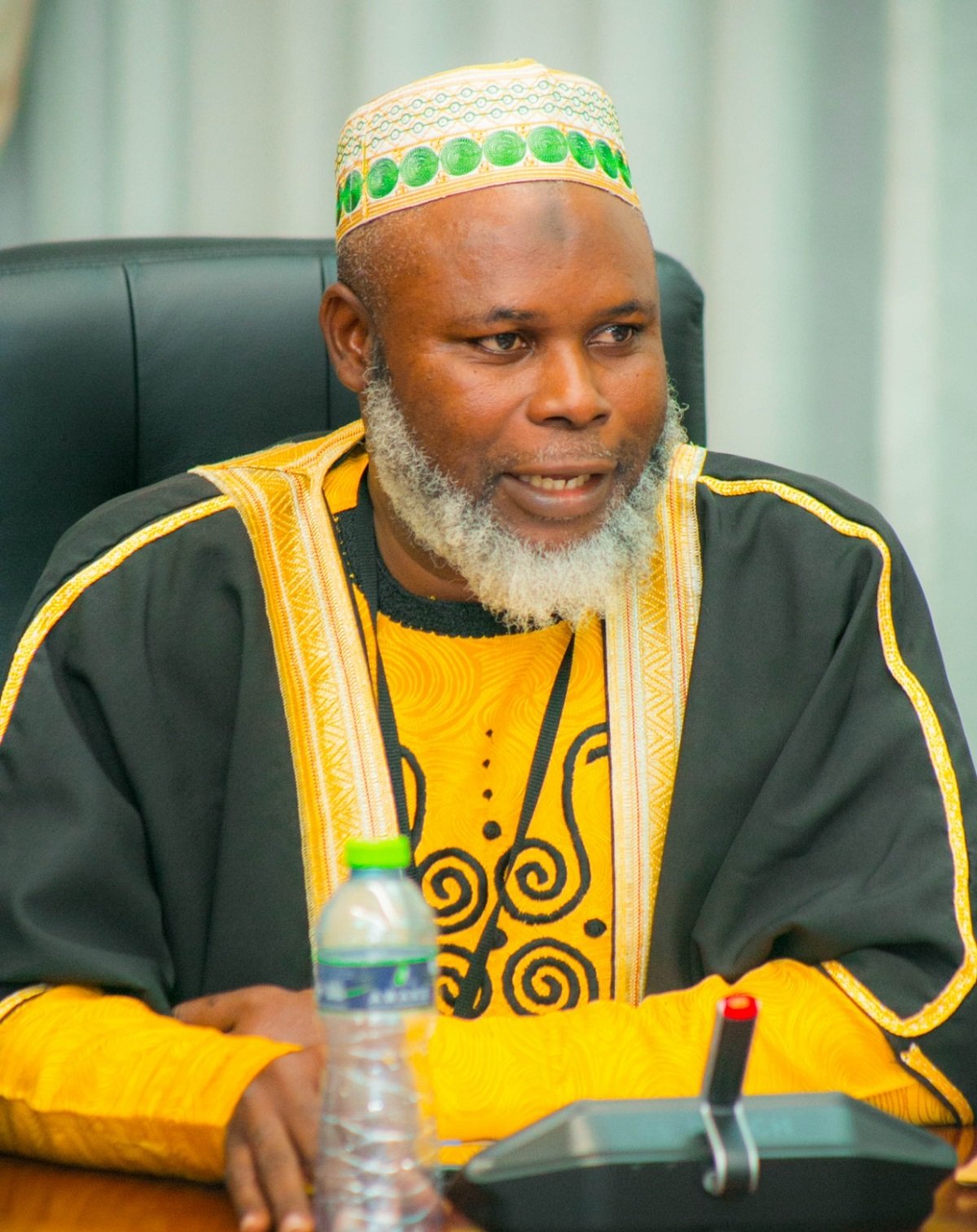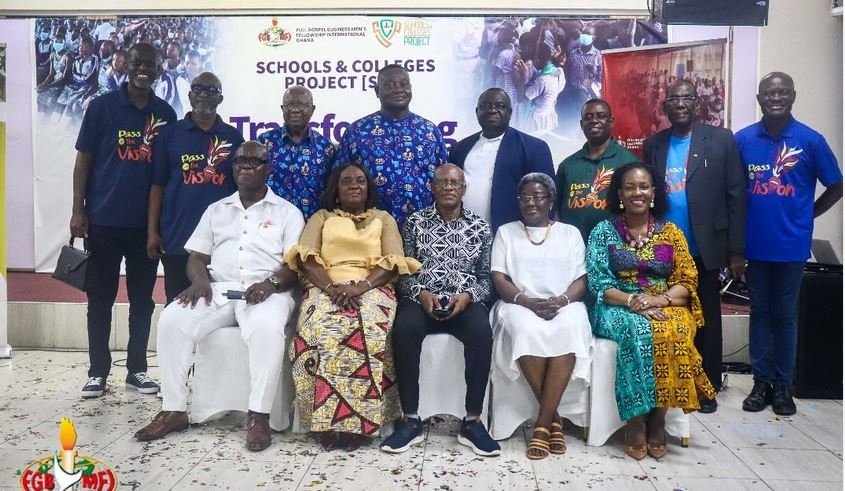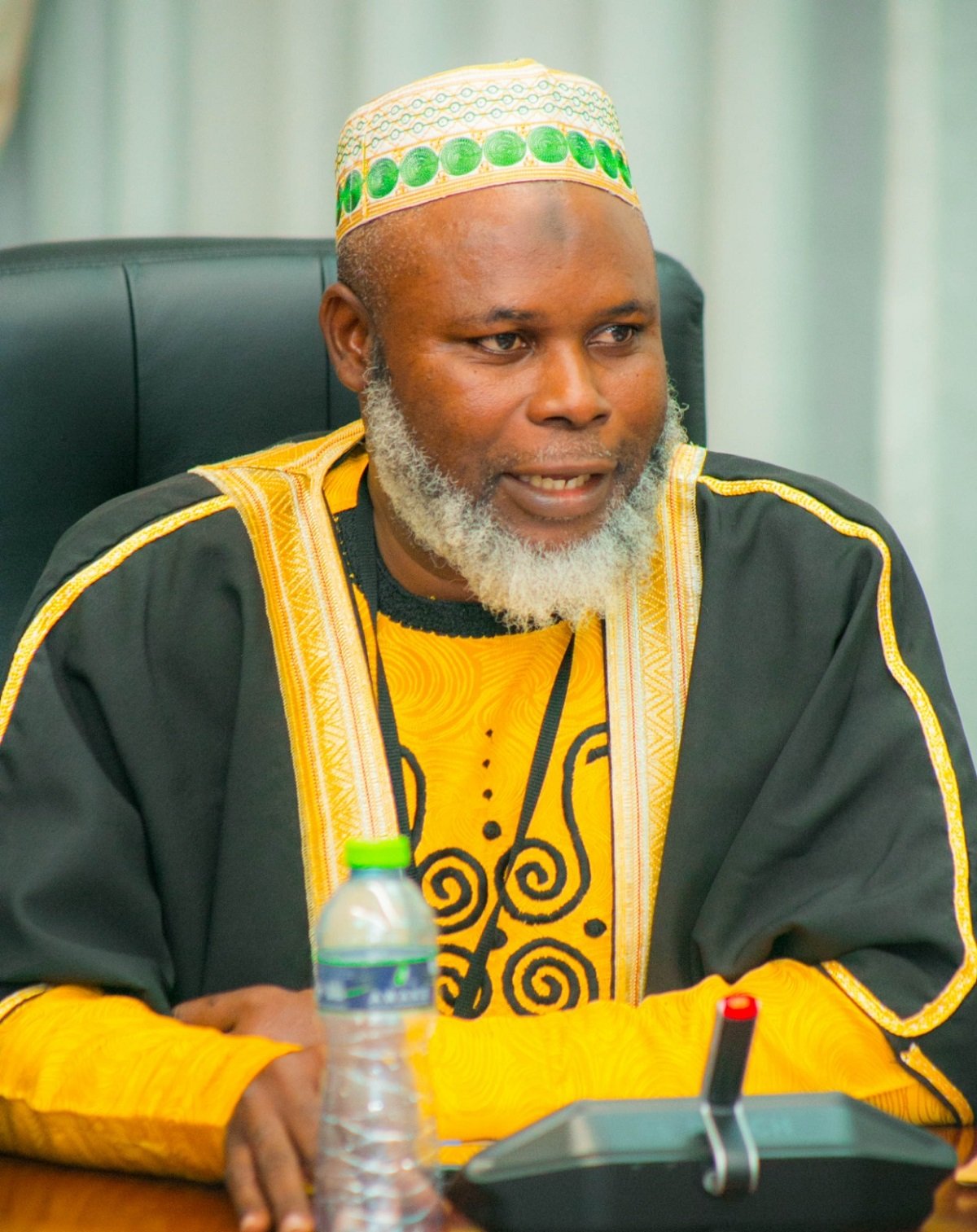Fruitful Living
Jumma Khutbah: ‘Rights and Responsibilities in Marriage under Islamic and Ghanaian Law’

Praising Allah and Sending Salutations on the Prophet (PBUH):
Alhamdulillah, all praise is due to Allah, the Most Merciful, the All- Wise, Who created us in pairs so we may find tranquility in one another. We send blessings and peace upon our beloved Prophet Muhammad (PBUH), who has provided us with the best guidance for our lives, including the sacred institution of marriage.
Introduction
Servants of Allah, today’s khutbah is dedicated to the institution of marriage in Islam Part 2—an institution that goes beyond a mere contract. Marriage is a spiritual union and a path through which we fulfill half of our faith. It fosters unity, provides solace, and builds the foundation for a righteous family and society. The renowned scholars, Sheikh Abdul Aziz Ibn Baz (RA) and Muhammad Ibn Salih al-Uthaymeen (RA), underscore the importance of marriage in Islam, emphasising that it protects one’s faith, upholds moral boundaries, and nurtures family values. As Sheikh Ibn Baz rightly observed, “Marriage is not only a safeguard for one’s soul but also a fortress for the family and society.”
Today, we will explore the rights and responsibilities in marriage, examine the importance of consent, and discuss the role of legal frameworks in Ghana that protect and honor these principles, ensuring that marriage in Islam is truly a pillar of faith.
Islamic Teachings on Spousal Rights: Insights from Surah Al-Baqarah
Servants of Allah, the Qur’an provides comprehensive guidance on the roles and responsibilities of spouses. In Surah Al-Baqarah, Allah (SWT) sets forth principles to create a balanced relationship based on kindness and justice. Allah states:
“And mothers may breastfeed their children two complete years for whoever wishes to complete the nursing [period]. Upon the father is their provision and their clothing according to what is acceptable. No person is charged with more than his capacity…” (Qur’an 2:233).
This verse emphasises that both parents share responsibilities in raising children. While the mother cares for the child through nursing, the father’s role is to provide financial support. This mutual responsibility fosters a supportive family environment where both parents contribute to the child’s well-being.
Moreover, Sheikh Al-Uthaymeen explained that these roles highlight Islam’s balanced approach to family life, assigning each spouse responsibilities that cater to their unique strengths, yet allowing flexibility for circumstances. In the case where either spouse is unable to fulfill their role, mutual support and understanding are encouraged to uphold family harmony.
The Farewell Sermon: The Prophet’s (PBUH) Guidance on Spousal Rights
In the Prophet Muhammad’s (PBUH) Farewell Sermon delivered during his last pilgrimage, he spoke about the essential rights and duties of spouses, urging mutual respect and compassion:
“O People, it is true that you have certain rights with regard to your women, but they also have rights over you. Remember that you have taken them as your wives only under Allah’s trust and with His permission. So, treat them with kindness and respect.”
The Prophet (PBUH) further warned men, saying, “Fear Allah in respect of women, for you have taken them [in marriage] with the trust of Allah.” He reminded that on the Day of Judgment, Allah would hold men accountable for their treatment of their wives. This reminder is profound, highlighting that marriage is a trust from Allah, and mistreatment or neglect of this responsibility will lead to accountability before Allah.
By Imam Alhaji Saeed Abdulai – 1BN Michel Camp, Tema
Features
Full Gospel Businessmen Fellowship launches project to transform young lives

The Full Gospel Businessmen’s Fellowship International (FGBMFI) Ghana has launched the Senior High Schools and Colleges Project (SCP) aimed at empowering and transforming the lives of young people.
Speaking at the launch, Professor Mike Ocquaye, the former Speaker of Parliament, emphasised the need to catch them young and train them as the current times were challenging.
He lauded the project, calling on all to support it, saying “In fact, it’s very important to catch them young, train them, lead them, guide them, and mentor them because the times are indeed rough,” Prof. Ocquaye said.
Mr Ekow Egyir Dadson, the Director, Schools and Colleges Directorate, stated that since its inception in 2018, the SCP had reached over 70 educational institutions with countless testimonies of transformation.
“We began with the Presbyterian Boys Secondary School (PRESEC) Legon, and now in 2024, we have visited 74 schools and impacted the lives of over 100,000 students, some of whom were personally mentored and now have graduated from the universities.”
He explained that the SCP, a vision by FGBMFI Ghana, was a bold outreach programme designed to call young people to Christ, train and equip them for the future.
He cited testimony-sharing, mentorship, career guidance, entrepreneurship and counseling as some of the unique approaches to be used in reaching out to the targeted students.
Mr Emmanuel Baba Mahama, the National President of the FGBMFI Ghana, launched the SCP Manual, which would help the FGBMFI Zonal Family Chapters across Ghana in order to adopt schools and colleges within their catchment areas.
The Schools and Colleges project is making a great impact; we have had first-hand testimonies from school heads, teachers, and students (mentees) about the SCP. This project has come to stay, Mr Baba Mahama assured.
He, therefore, called for more volunteers and partners to help the SCP shape the next generation of leaders and citizens.
Findings by the FGBMFI revealed that Ghana’s senior high schools, colleges, and university students face growing challenges like addictions, indiscipline, poor academic performance, pornography, homosexuality, broken homes, and a lack of godly guidance.
That had been a concern to many parents and society, “but the FGBMFI believes there is hope to rescue and restore these young students,” Mr Mahama said. –GNA
Features
Divorce in Islam

In another instance, the Prophet (PBUH) recommended arbitration and family intervention in cases of marital disputes.
“If you fear dissension between the two, send an arbitrator from his family and an arbitrator from her family. If they both desire reconciliation, Allah will cause it between them” (Qur’an 4:35).
This Quranic text emphasises the importance of seeking reconciliation through family and community support.
Conditions and Rules of Divorce in Islam
Islam sets forth conditions and rules to ensure that divorce is handled responsibly:
Clear Intention: The decision to divorce must be made with a clear mind and sincere intention, free from anger or impulsivity.
The Waiting Period (Iddah): After pronouncing divorce, the wife must observe an iddah period, during which the husband can take her back if both agree. The iddah period is three menstrual cycles for a non-pregnant woman or until childbirth if she is pregnant.
Revocable and Irrevocable Divorce:
Revocable Divorce (Talaq-e-Raj’i): The husband can take back his wife within the iddah period if reconciliation is achieved.
Irrevocable Divorce (Talaq-e-Ba’in): After the third talaq, the divorce is final, and reconciliation is only possible through a new marriage contract if both agree.
Respect and Dignity: Islam commands respect and fairness during divorce proceedings, ensuring that both parties maintain dignity. Allah (SWT) advises:
“And live with them in kindness. For if you dislike them—perhaps you dislike a thing and Allah makes therein much good” (Qur’an 4:19).
This verse encourages respect, even if differences arise.
Rights to Seek Divorce by the Husband or Wife
Islam grants both spouses the right to seek divorce, although their procedures differ.
Rights of the Husband (Talaq): A husband has the right to initiate talaq, following Islamic procedures. He must observe fairness, fulfill his wife’s rights, and provide any outstanding mahr or iddah maintenance.
Rights of the Wife (Khula): A wife can seek divorce through khula, which involves returning part or all of her mahr to end the marriage. The Prophet (PBUH) permitted khula for the wife of Thabit ibn Qays (RA) when she requested separation.
“Then if you fear that they will not be able to keep [within] the limits of Allah, then there is no blame upon either of them concerning that by which she ransoms herself” (Qur’an 2:229).
Reasons for a divorce by both parties
In order to divorce a wife, a husband may not necessarily have to give a reason. However, in the case of a woman, she may initiate a Khula (Separation) for three reasons; her husband’s in ability to consummate the marriage, his failure to provide for her upkeep, and if the woman was married as a child or without her consent she can repudiate her husband when she reaches puberty (Mucai-Kattambo et al. 1995). In addition a woman can apply for a khula if she persistently faces domestic violent.
Divorce Under Legal Regimes: The Mohammedan Ordinance CAP 129
In Ghana, the Mohammedan Ordinance CAP 129 regulates Islamic marriages and divorces. It provides a formal legal framework for Muslims to marry, divorce, and remarry in line with Sharia principles. This ensures that divorce proceedings, rights, and responsibilities are recognized by law, protecting both parties’ rights according to Islamic teachings.
Remedies for a Wrongful Divorce
Reconciliation: Islam encourages reconciliation if a divorce was issued hastily. The Prophet (PBUH) often advised families to mediate, promoting forgiveness and mutual understanding.
Financial and Social Support: If a husband neglects his wife’s rights upon divorce, she can claim compensation, unpaid mahr, and iddah maintenance. Islam emphasises justice and fairness for divorced women to ensure they are not left destitute.
Community Support: The Muslim community is encouraged to provide support for divorced individuals, allowing them to reintegrate with dignity and support, upholding Islamic principles of compassion.
EFFECTS OF DIVORCE ON CHILDREN
One significant concern is the impact of divorce on children. Patel et al. (2008) in “The Harm of Talaq” note that children from broken homes face higher risks of emotional distress, academic challenges, and social instability. Parents must consider these effects when making decisions, ensuring the wellbeing of their children.
More precisely, children from broken homes are more likely to have poorer health; to do worse in madrassas and schools; less likely to attend the massajid; become hufaz and Islamic scholars; more likely to commit crime, to smoke and take drugs; to be unemployed and to die earlier than children who live with married parents. By divorcing parents have let loose a vicious cycle. Their children are more likely to repeat the cycle of unstable parenting which they had experienced and suffered (Patel et al., 2008).
In conclusion, divorce in Islam is a compassionate solution, regulated to ensure justice and respect. While it is permitted, it is only to be used as a last resort, with the utmost care and fairness. Islam emphasizes kindness, patience, and thoughtful reconciliation to resolve marital issues before resorting to divorce.
May Allah (SWT) guide us to act with wisdom and justice in our relationships and protect our families with love and mercy. Ameen.
References:
• Qur’an, Surah Al-Baqarah (2:229, 2:230, 2:231, 2:232, 2:236, 2:237), Surah An-Nisa (4:19, 4:35), Surah At-Talaq (65:4)
• Hadith from Sunan Abu Dawud (2178), Sahih Bukhari, Sahih Muslim
• Mohammedan Ordinance CAP 129
• Patel, A. A. et al., 2008), Blessings of Marriage (Harm of Talaq {Divorce), Page 278.
By Imam Alhaji Saeed Abdulai – 1BN Michel Camp, Tema



